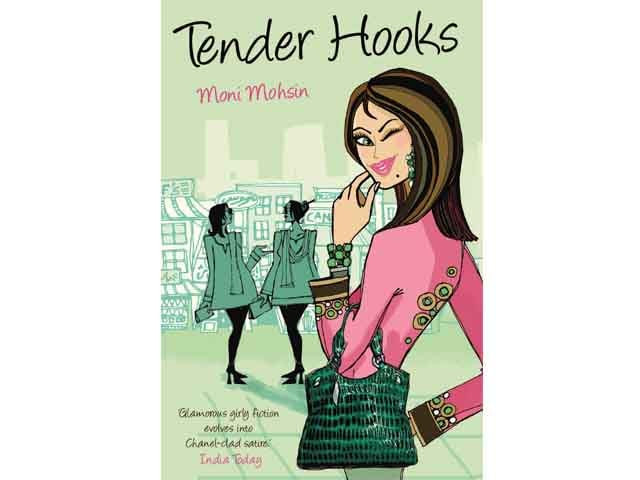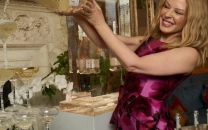Tender Hooks: The butterfly effect
Moni Mohsin walks a tightrope between her works turning into pure social commentary or else caricature.

Tender Hooks: The butterfly effect
At once a biting social commentary, a masterpiece of satire and an all-around fun read, the ‘Social Butterfly’ columns have been a big hit ever since they were first printed. It’s a world of GTs, of ladies who lunch, party-shartys and lots and lots of gos(sip).
Tender Hooks is Moni Mohsin’s follow-up to the best-selling Diary of a Social Butterfly paperback, but this one isn’t just a compilation of random columns but a complete novel starring all the characters we’ve come to know, love and hate all at the same time.
The story revolves around the search for an ‘illegible’ (eligible) girl for Butterfly’s cousin Jonkers, who is browbeaten by his domineering mother Aunty Pussy. Along the way, we meet more than a few new additions to the cast, in all of whom we find echoes of ourselves or of people we know.
Mohsin walks a tightrope between her works turning into pure social commentary or else caricature. To her credit, it is a line she walks with expert ease, never plunging into the abyss of allegory or succumbing to superficiality.
Nor do her characters remain caricatures, unable to grow and adapt. As the novel progresses, we see the Butterfly we know (and love to hate, in some cases), show that she not only has a heart of gold underneath the layers of superficiality, but also possesses a surprising sting.
And while the characters may be fictional, the setting for the novel is very real. It is the Pakistan of suicide bombers, street crime, political and social corruption, and deep, deep denial. If we are honest, we will find echoes of real conversations in the uproariously funny exchanges that dot the novel. Like this one:
“Meanwhiles, Janoo and Shaukat and Jammy and Zafar had got back to discussing politics and Zafar was saying it was impossible for a Muslim to kill another Muslim. That’s why he was cocksure it wasn’t the Talibans who were doing the bombings. Janoo said okay then who did all the killing in the Iraq and Iran war in which a million people died and Zafar said that was tau cent percent the Americans. And then Jammy said it was the Israelis and I said to Zeenat that her highlights were very nice and who had done them and Shehla asked Tanya if she’d come and stay with them in Swizzerland and she replied, ‘No offence but Geneva sucks.’”
Move over Mrs Malaprop, you’re not a shade on our Butterfly.
Published in The Express Tribune, Sunday Magazine, February 13th, 2011.



















COMMENTS
Comments are moderated and generally will be posted if they are on-topic and not abusive.
For more information, please see our Comments FAQ